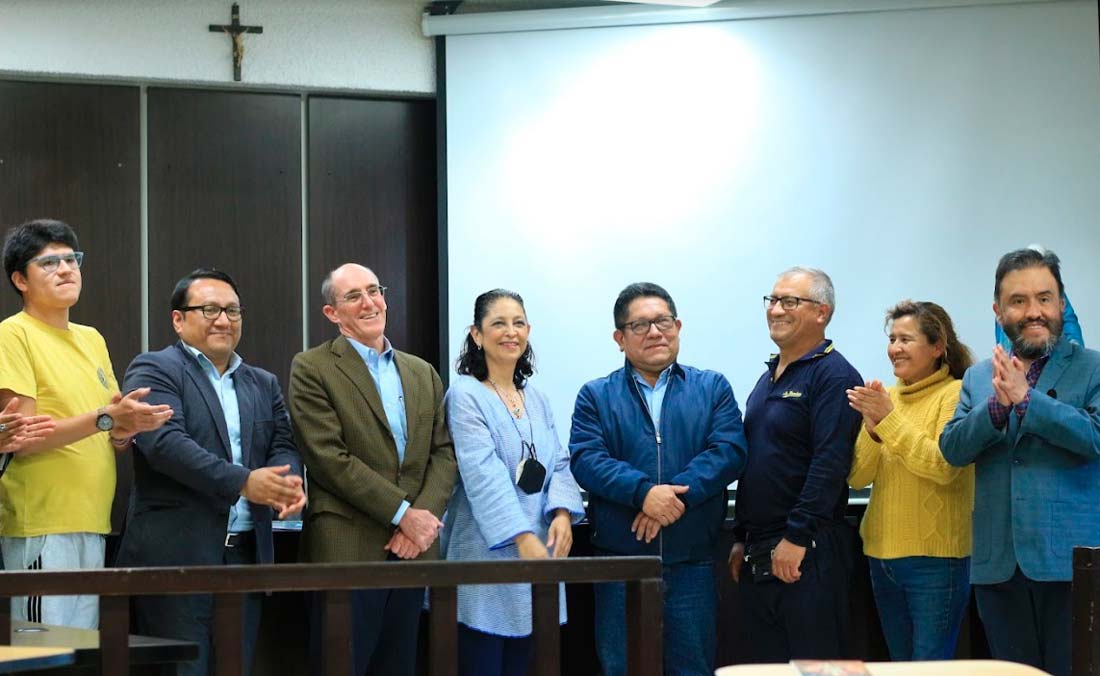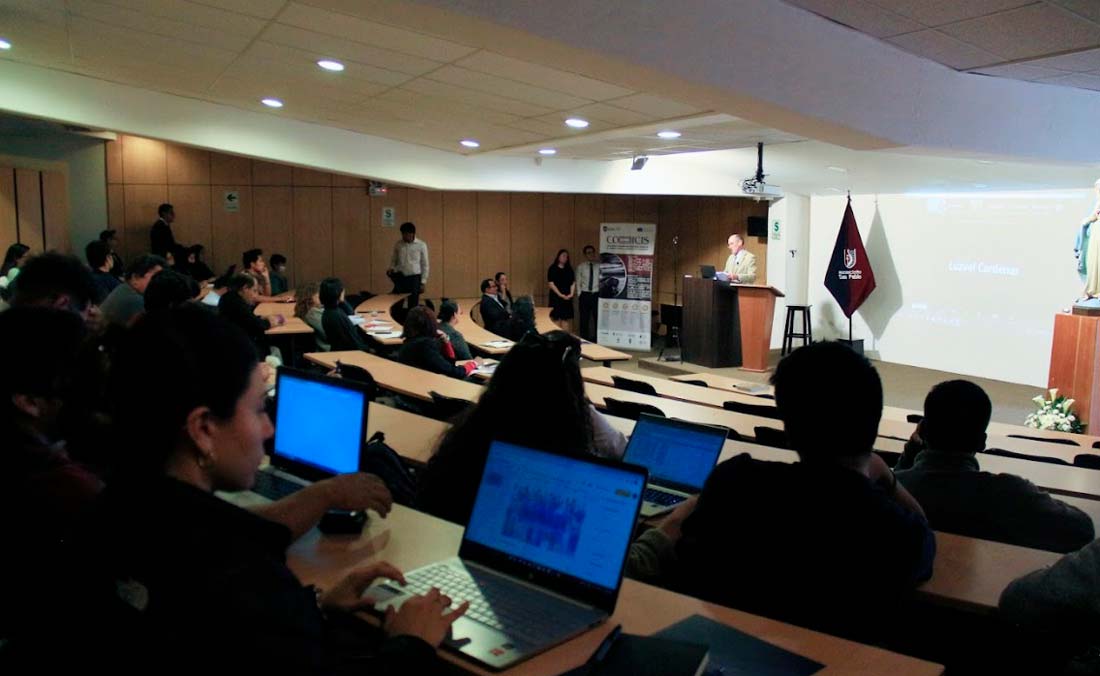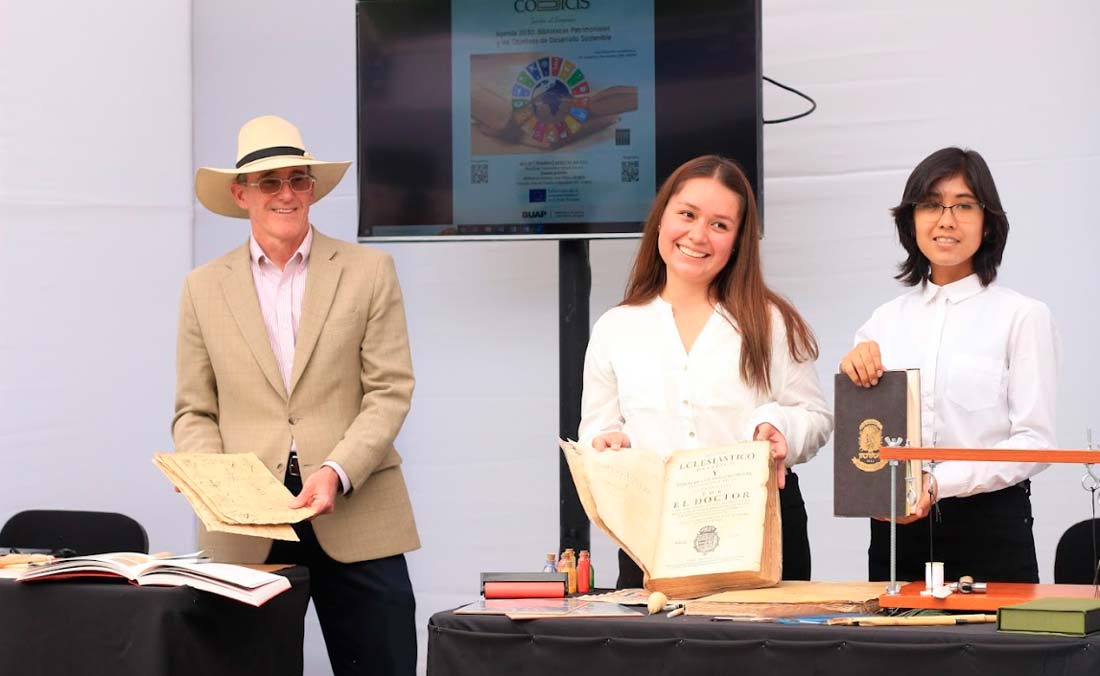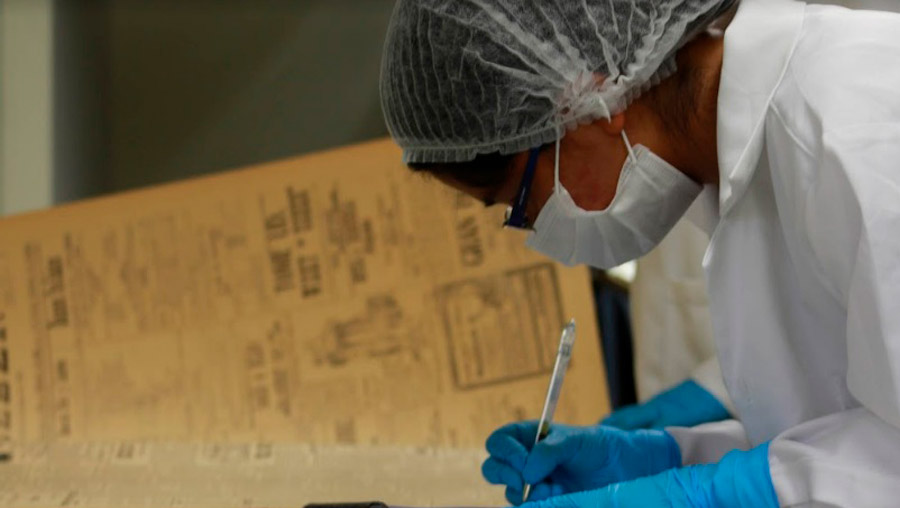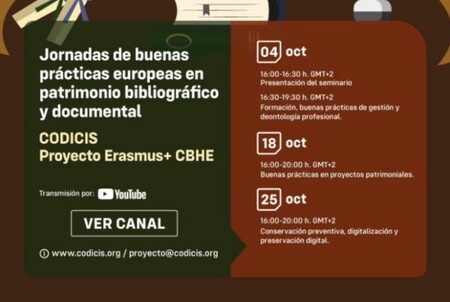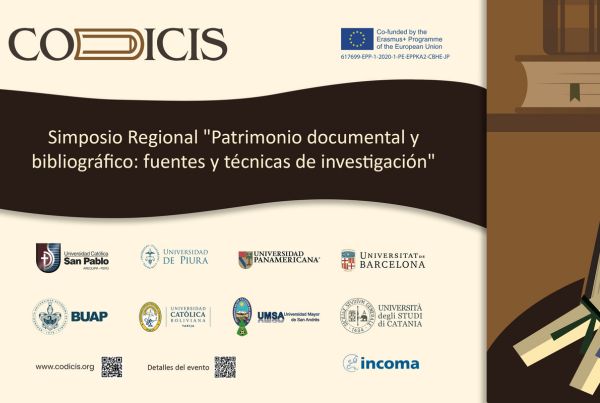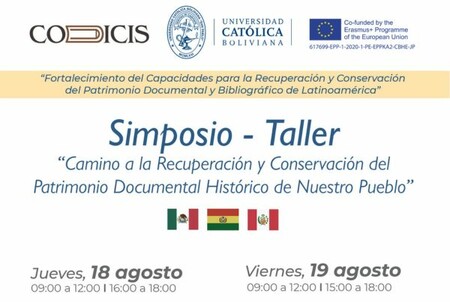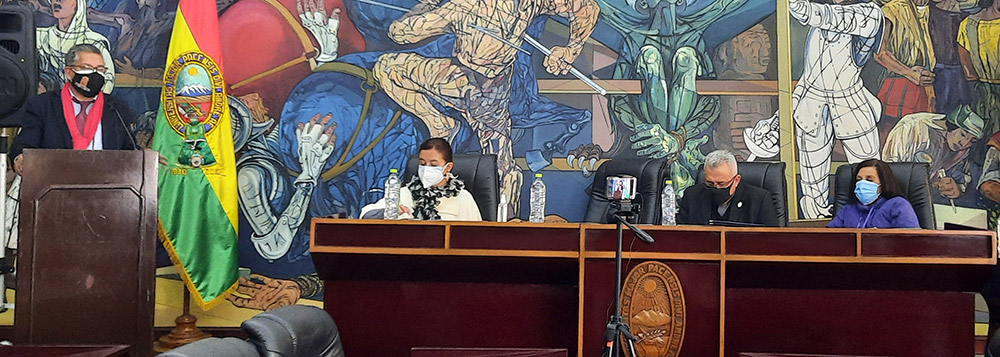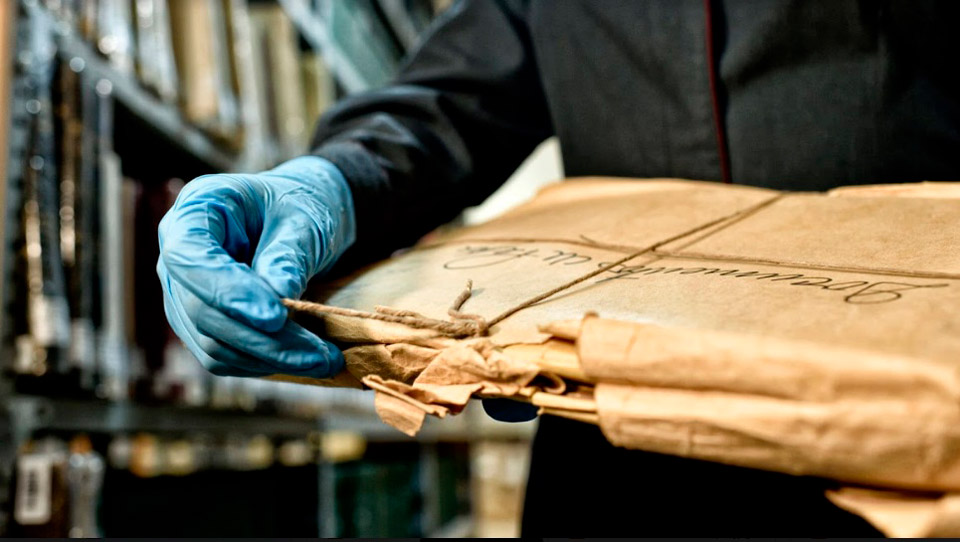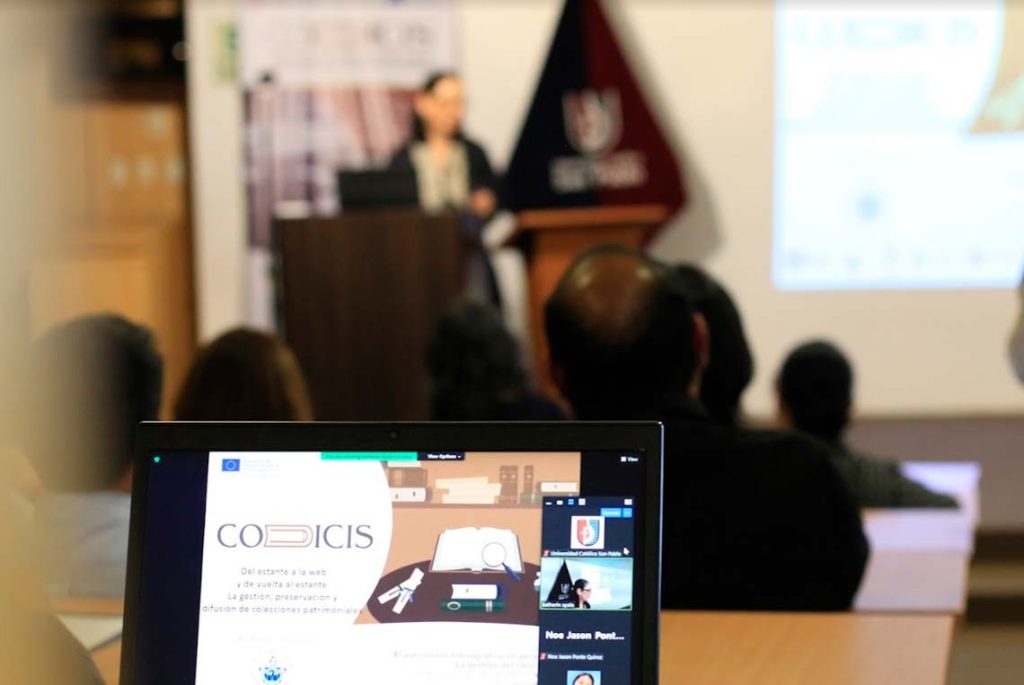
The San Pablo Catholic University (UCSP), received two leading experts on bibliographic heritage, this during its Research Week. They participated in the project Symposium codicis, which is led by San Pablo and seeks the preservation of documentary heritage, through the training of personnel for its management, recovery and conservation.
They are Mercedes Salomón Salazar, director of the historical library 'José María Lafragua', of the Benemérita Universidad Autónoma de Puebla (Mexico) and Gerardo Trillo Auqui, expert in Library Science, with vast experience in the National Library.
Mercedes Salomón announced the work she has been doing in Mexico, to digitize the old books 'From the shelf to the web and back to the shelf'. In that regard, he clarified that this is one more step in the conservation of documentary heritage, but it is not all. “Digitization must be carried out following conservation standards. Furthermore, the files expire and you have to be changing and updating the system where the repository is located,” said the specialist.
Although the great advantage of digitization is that researchers can consult any document, without having to go to the library or mistreat the document, for this to be correct, the books must be inventoried and cataloged depending on their age, their rarity, among others. other characteristics that make them unique.
Gerardo Trillo commented on the work carried out in the National Library of Peru for the conservation of books that are considered heritage. He recalled that these must be appraised (put a price on them), not with the desire to market them, but to know the cost to catalog the specimens.
The Bicentennial Project stood out, in which an inventory of the collection of the renowned historian Jorge Basadre was made in the city of Tacna, a work that was recently completed. “Recognizing that this is a complex process that has different stages allowed us to do a good job with basic tools,” he said.
The expert highlighted that inventorying the books will also prevent them from being trafficked. “You don't know the number of times we have had to go rescue texts from Customs,” he commented. He recalled that there are already policies for public libraries, since 2018, which has helped the texts to remain in good condition.
The specialists held conferences and participated in discussions with staff from libraries and other institutions that have ancient collections, as well as with teachers and staff from San Pablo who do the same. These were spaces for dialogue to learn, first-hand, the needs and opportunities for the conservation of ancient texts.
Codicis in La San Pablo
The San Pablo Catholic University is in charge of coordinating the international Codicis project. This is an important achievement for our country and Latin America, as it promotes the enhancement of the documentary and bibliographic heritage of Peru, Mexico and Bolivia, through the training of professors from universities in those countries, in the recovery, conservation and authorization of ancient collections. .
In addition, San Pablo has experience in this field. Thus he recovered and digitized the archives of emblematic Arequipa newspapers such as La Bolsa, El Deber and El Republicano, and with this, part of our history.
The members of the Codicis project are the Benemérita Autonomous University of Puebla and the University panameric, both from Mexico. The universities are from Bolivia Bolivian Catholic Saint Paul and Mayor of San Andrés. From Spain, the University of Barcelona and the Incoma agency. For Italy, the University of Catania and from Peru, in addition to the San Pablo that leads it and the University of Piura.
Arequipa, January 9, 2022
See the note on the original site: Here

